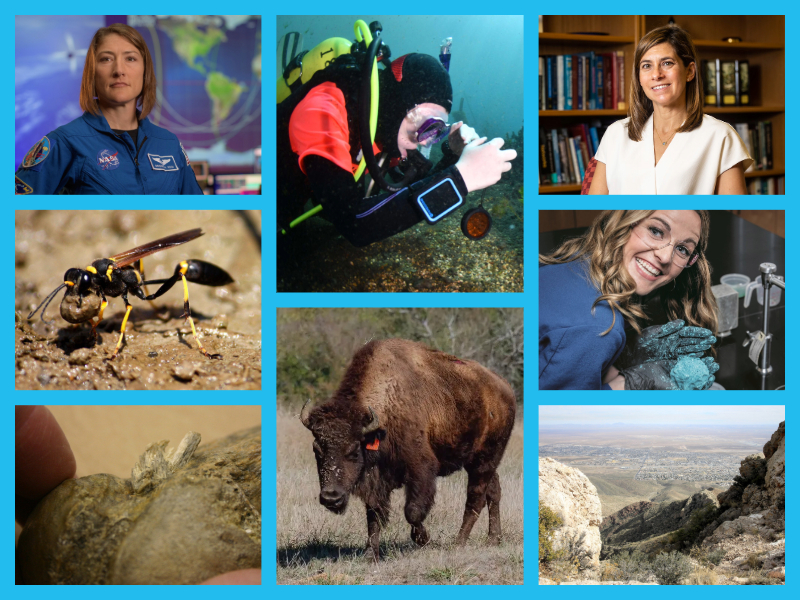Here are the stories on Texas Standard for Thursday, Dec. 28, 2023:
How a UT professor is helping the CDC plan for the next pandemic
When the COVID-19 pandemic ramped up, there were quick comparisons to the Spanish Flu a century earlier. But we may not have nearly that long to prepare for the next large-scale outbreak. The Centers for Disease Control and Prevention is already making plans to put together the first nationwide outbreak response and disease modeling network. And they’re getting some help from a Texas team.
Professor Lauren Ancel Meyers, director of the Center for Pandemic Decision Science at UT, joined the Standard in September to tell us more.
Indigenous ranchers raising bison in Texas
Before Europeans arrived in North America, the Great Plains were populated by herds of wild bison; the Nature Conservancy estimates about 30 million bison wandered the continent in the 1400s. By the late 1800s though, bison were almost extinct. Through conservation efforts, their numbers rebounded, and now there are around 350,000. As of this fall, there are even more bison in Texas – this time on Indigenous lands.
Alejandra Martinez, who covers the environment for the Texas Tribune, shared more last month.
An ancient weapon for hunting mastodon has been identified by a team of Texas A&M researchers
Researchers have identified the oldest weapon made of bone in the Americas: a 13,900-year-old projectile point used for hunting mastodons.
Michael Waters, director of the Center for the Study of the First Americans at Texas A&M University, shared the details of their discovery in February.
Astronaut Christina Koch on NASA’s upcoming Artemis 2 mission
In April, NASA announced the four astronauts traveling to space as part in the Artemis 2 mission, the first crewed spaceflight to the moon in more than 50 years. Among them: space flight veteran Christina Koch. She joined us to preview the mission.
After decades of debate over what to do with El Paso’s Castner Range, it’s now a national monument
El Paso’s Castner Range is a volcanic ridge dotted with wildflowers and ancient rock art. In March, the Biden administration designated it as a national monument, protecting it from future development.
Scott Cutler, president of the Frontera Land Alliance, joined us with an overview.
If you hate spiders, you should love mud daubers. Here’s why.
Spring through fall can be mud dauber time. While they are a type of wasp (part of the Hymenoptera order), don’t grab the wasp spray just yet. These are considered beneficial insects and typically are not aggressive toward humans.
Texas A&M AgriLife Extension Service program specialist Wizzie Brown, Texas Standard’s go-to insect expert, explains.
These Girl Scouts are earning their badges under water
In the depths of Austin’s Lake Travis or San Marcos’ Spring Lake, Girl Scouts are becoming certified in scuba and doing environmental research.
Texas Standard intern Marissa Greene plunged into what it means to dive like a Girl Scout.
Kate the Chemist on her new science podcast
Scientists often work to answer “the big questions”: Questions about space that can be mind boggling. Questions about climate change that can be downright scary.
The new podcast “Seeking a Scientist” looks to make sense of it. Host and UT-Austin chemistry professor Kate Biberdorf (aka Kate the Chemist) joined us in May with a preview.







